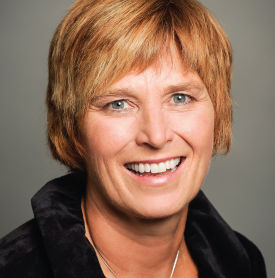Goodwill Industries is known for the work it does to help those experiencing various employment difficulties or limited functional ability. Many times these clients live very close to the edge, financially speaking.In an effort to bring the same support to its employees – many of whom are in a similar position, working in the organisation’s retail locations as a stepping stone to more gainful employment – Goodwill Industries, Ontario Great Lakes, has partnered with area financial advisors to work as mentors, and launched the Goodwill Financial Strengthening Program.
Terry Zavitz, president of Zavitz Insurance Inc., is leading the recruitment effort to bring those who are relatively successful and savvy about money matters, together with those Goodwill employees taking the newly offered curriculum. During the course of the four-week program (eight hours in total), participants learn about different kinds of credit (including payday lending, lease-to-own arrangements, overdraft, credit cards and lines of credit), bank fees, compounding interest, and basic lessons, such as the annual cost of a person’s daily coffee and muffin habit.
Towards the end, each participant sets a financial goal for themselves, and works with their newly appointed mentors, to help them reach those milestones.
“The goals that are set are as varied as the people,” says Gloria Pickering, employee development facilitator at Goodwill Great Lakes.
The program makes use of the Money Matters curriculum, developed by ABC Life Literacy Canada, sponsored by TD Bank Financial.
With their participation, each Goodwill employee gets a binder, and Gail Vaz Oxlade’s book, Easy Money. “It’s part of the Good Reads series. A lot of them have seen her on TV too – they say ‘Oh yah, I know her. She’s good,’” giving the program an added boost of credibility, says Ms. Pickering.
What’s more, she says ABC Life Literacy has gone out of their way to make the curriculum accessible in different ways. “It’s the literacy organization that wrote it – that’s their forte."
Before the program was up and running, Ms. Zavitz, Ms. Pickering, and Goodwill Great Lakes’ senior staff, considered several different options for running the employee literacy program.
“We were actually going to develop our own curriculum,” says Ms. Zavitz. The group also looked at curriculum that could be adapted. “We were looking at a grant, and going online, and making it a lot bigger.”
Ultimately, though, Ms. Pickering identified the program available through ABC. “One of the things I really like about working with large organizations, is that they have really good people who know how to find opportunities to partner,” Ms. Zavitz says. “Gloria was the one who really found the program. She’s done an incredible job.”
The part that’s adapted, Ms. Pickering says, is the mentorship aspect where Ms. Zavitz is involved. “We do the full four modules of the Money Matters program. Then, to sustain the learning and help our staff make some behavioural changes, to reach the financial goals they set for themselves, they’re partnered with a mentor.”
Since launching in February, the program has graduated 23 participants from its location in London, Ontario. The program is now running for employees of the retail locations in Tillsonburg and Stratford, as well. Today there is a waiting list in London of those ready to sign up for the next session.
For an advisor who is far more accustomed to working with clients of at least modest means, Ms. Zavitz says the mentorship opportunity has deepened her understanding of the financial challenges faced by the poorest Canadians.
“You don’t really understand the problem until you’re in it…until you’re actually working with it. There are no simple solutions.”
She says her own stance on payday lending, for example, has softened somewhat since beginning this mentorship work.
“I had my view on payday loans, thinking how predatory they are,” she says. And although that opinion hasn’t changed dramatically, she agrees that simply taking people to their friendly neighbourhood banker to learn about lines of credit, isn’t always as viable an option as some people believe.
“All of it is much more complex than just the payday loan issue. It’s not so simple. Anybody working at a low income doesn’t have much room to make mistakes,” she says. “They might not be doing such a bad job, but even a small mistake can cause years of financial difficulty.
She gives an example of her own experience with a telephone service provider, one where the company ultimately owed her “a small fortune,” Ms. Zavitz describes a situation where the company wrongly took over $700 from her bank account. “I could afford it, and I could afford to fight it, but what does somebody do when $700 is wrongfully taking out of their account, they can’t pay rent, and the landlord is banging at their door?”
“It’s been an eye-opening experience,” she says of the program... “You get a better understanding of what it can be like to live on the edge.”




